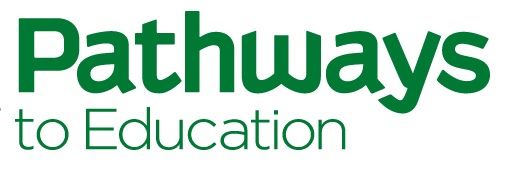Emma is a Pathways alum from Winnipeg, Manitoba. She believes it’s important to have diverse voices in literature and hopes to create a non-profit organization to support young writers.
Emma smiles as she signs her book, The Fairy King. She’s at the Miami Book Fair with a display about the novel to her left and copies of it stacked to her right.
In 2019, Emma became a published author. For her, it was a satisfying experience to finally see and touch the book she brought to life.
But when she released it to the public, Emma was both nervous and excited. “It’s like someone reading your diary,” she says.
Emma started writing The Fairy King in high school on loose-leaf paper.
“I was always into writing because of English class. I really enjoy stories and I find they’re kind of like a coping mechanism—getting all the craziness, beauty, and grotesqueness that resides in the human brain and heart into something physical,” she says.
As a child, Emma used writing as a form of escapism and always aspired to become an author.
In Grade 7, she moved to a new neighbourhood with her family and had to change schools. As an introvert, she found it difficult to make new friendships and was relentlessly bullied.
Two years later she joined the Pathways Program, and it became a refuge for her. The volunteers, students, and staff at Pathways gave Emma a sense of community and supported her passion for writing—especially her mentor, Claire.
“Having a support network of people who can be there when you’re feeling frustrated or sad, to kind of pick you back up from that, is good,” says Emma. “My support network at Pathways was one of the things that kept me motivated.”
Claire gave feedback on Emma’s story drafts along the way and connected her with a writing association for networking opportunities and extra support.
Once The Fairy King was complete, Emma set out to have it published. But she soon encountered a roadblock—every publisher she came across required novel submissions to be from authors who already had published work.
As a first-time author, Emma found this requirement personally difficult, but she also feared its wider impact on the publishing industry as a whole, and its ability to limit the diversity of voices that are heard.
“Having authors that are younger, have a different sexual orientation, gender, and racial perspective is important, because then we have different ways of looking at the same thing. And to only look one way is pretty biased,” says Emma.
Despite her disappointment, Emma was determined to make sure this roadblock wouldn’t end her dream. She began exploring self-publishing, but soon found that led to a new challenge: getting a good-quality print of your book comes with a large price tag.
Facing another obstacle, Emma once again turned to Claire, who offered guidance and support. She was a sounding board for Emma’s questions, an outlet for her frustrations, and constant source of motivation.
Energized by Claire’s enthusiasm, Emma stayed focused on her goal and saved her money. Then one day, she got a notification of a sale and purchased a publishing package—finally turning The Fairy King into a printed reality.
“I felt what I imagine would be a similar feeling to having a child. You put in all this time and effort into creating this thing that you can now physically touch. At this point, that book is my child,” says Emma.
Now Emma wants to help other young writers get that same feeling. Today, she’s a mentor at Pathways Winnipeg where she supports youth who have their own dreams of becoming authors. The students come to her with questions about publishing and ask her to read over their story drafts.
“They’re really talented. The characters themselves are amazing, and the fact that they trust me to be some sort of influential part of that is pretty exciting,” says Emma.
Knowing how hard it was for her to become a published author, Emma believes it’s important to support other young writers. She wants to help them join the literary canon and make the publishing world more accessible.
Her long-term goal is to establish a non-profit that supports young emerging authors and brings a diverse range of voices to the literary world.
“That was also the thing that sparked my desire to want to work with Pathways,” says Emma. “My experience at Pathways was definitely influential and impactful on me and my journey. If I can create something similar for young writers, that would be pretty cool,” says Emma.
